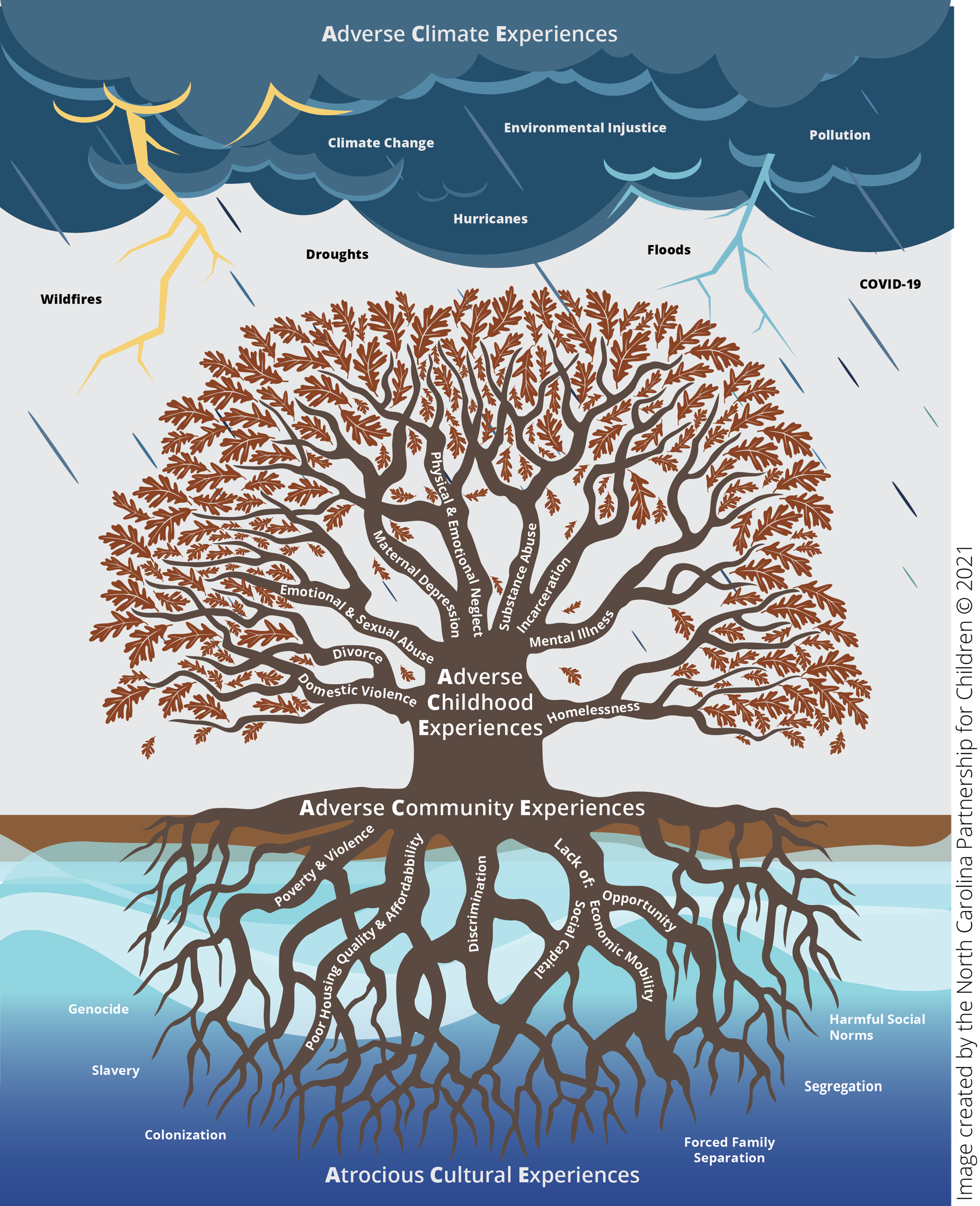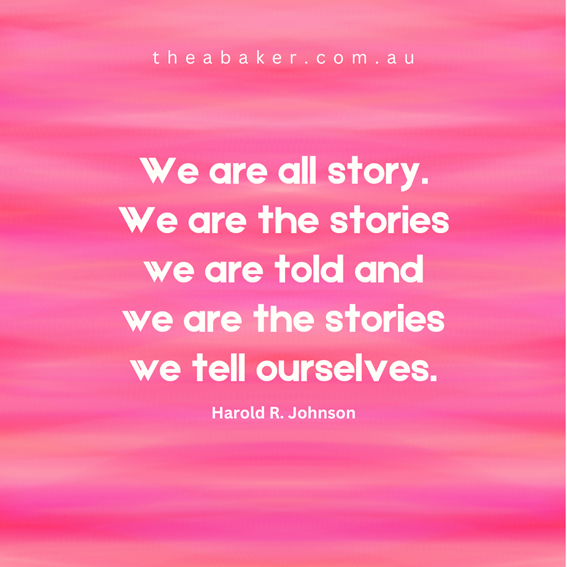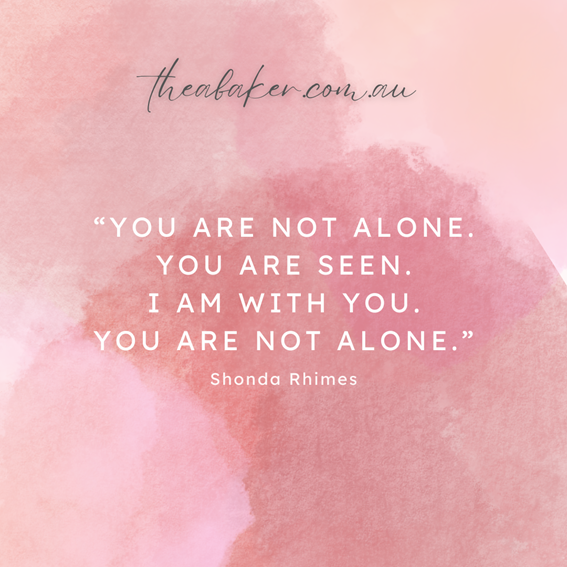Adverse Childhood Experiences (ACES)
Adverse Childhood Experiences (ACES)
One of the most fascinating aspects of working with trauma in its most broad definition – which includes everything from attachment trauma, childhood neglect and abuse, through to sexual abuse, gender-based violence, loss and incident-based trauma like car crashes, bushfires, or floods – is how differently we encode traumas as individuals. One of my teachers/mentors explained to me once that difficult or ‘traumatic’ experiences cause us a universally experienced suffering, but only get encoded as trauma when those experiences cause us to believe something negative about ourselves, other people, and the world around us. Interestingly, what I might have encoded as trauma in this way will be different to what you might experience as trauma, because my perception of myself, other people, and the world around me will be different to yours, and that individual difference is often so gnarly for us to wrap our heads around.
This is particularly the case when we try to compare our trauma / experiences to other people’s – I think often in an attempt to make sense of our experience, but it can end up with us minimising our pain. There is not a single client that I have worked with who at some point in our sessions doesn’t say something like, “yes, but other people have experienced traumas that are far worse than mine” or, “yes, but at least ‘x’ didn’t happen to me…that really would be traumatic”. And this often leads us into a conversation around there being no hierarchy of trauma. Let that sink in for a second because it might create a little resistance for you reading it. It’s not about the incident(s) or event(s) that determine the effect of the trauma, but more what the incident(s) come to mean about us and for us.

A big part of the insight that we have gained into the impact of trauma comes from a large longitudinal study that occurred between 1995-1997 where 17,000 people were asked about their childhood experiences, their current health status and behaviours and they underwent physical exams to assess their physical health. This became known as the Adverse Childhood Experience Study (ACES). The Family History and Health Appraisal questionnaires were used to collect information on child abuse, neglect, household challenges and other socio-behavioural factors. One of the important things to remember about the population studied in the initial ACES is that the original cohort were mostly white, middle- and upper-middle-middle class, university educated, had access to private health care (they were employed by a corporate healthcare brand in the USA). The ACEs questions ask about:
Abuse:
- Emotional abuse:A parent, stepparent, or adult living in your home swore at you, insulted you, put you down, or acted in a way that made you afraid that you might be physically hurt.
- Physical abuse:A parent, stepparent, or adult living in your home pushed, grabbed, slapped, threw something at you, or hit you so hard that you had marks or were injured.
- Sexual abuse:An adult, relative, family friend, or stranger who was at least 5 years older than you ever touched or fondled your body in a sexual way, made you touch his/her body in a sexual way, attempted to have any type of sexual intercourse with you.
Household Challenges:
- Mother treated violently:Your mother or stepmother was pushed, grabbed, slapped, had something thrown at her, kicked, bitten, hit with a fist, hit with something hard, repeatedly hit for over at least a few minutes, or ever threatened or hurt by a knife or gun by your father (or stepfather) or mother’s boyfriend.
- Substance abuse in the household:A household member was a problem drinker or alcoholic or a household member used street drugs.
- Mental illness in the household:A household member was depressed or mentally ill or a household member attempted suicide.
- Parental separation or divorce:Your parents were ever separated or divorced.
- Incarcerated household member:A household member went to prison.
Neglect:
- Emotional neglect:Someone in your family never or rarely helped you feel important or special, you never or rarely felt loved, people in your family never or rarely looked out for each other and felt close to each other, or your family was never or rarely a source of strength and support.
- Physical neglect:There was never or rarely someone to take care of you, protect you, or take you to the doctor if you needed it2, you didn’t have enough to eat, your parents were too drunk or too high to take care of you, or you had to wear dirty clothes.
What we learned about from the ACES is that adverse childhood experiences are actually quite common, with almost two-thirds of the participations reporting at least one ACE, and more than 1 in 5 reporting three or more ACEs. Whilst ACEs are common across all populations though some populations are more vulnerable to experiencing ACEs because of the socio-economic conditions in which they live, learn, work and play. In terms of the impact on overall health and wellbeing, we learned that as the number of ACES increase, so does the risk for negative outcomes. The ACEs study has been replicated and expanded in the decades since the original study and the research now informs many of the programs that are run in community and education spaces.
In the years following the original study we often contextualise adverse childhood experiences within a historical framework – where we have come from, or ‘Atrocious Cultural Experiences’ (such as colonisation, slavery, segregation, genocide…) and what we experience around us – Adverse Climate Experiences (such as COVID 19, pollution, drought, climate crisis…). The intergenerational impact of where we come from directly play into our ACEs, and those ACEs are similarly impacted by the environmental / external experiences.

This is very much the foundation of what we call C-PTSD / Complex-PTSD – but more on that in next week’s blog!
If this blog has prompted you to better understand trauma and your own childhood experiences, would like a safe space to talk about how they may impact your mental health, please get in touch with us: www.theabaker.com.au / hello@theabaker.com.au / 03 9077 8194.



